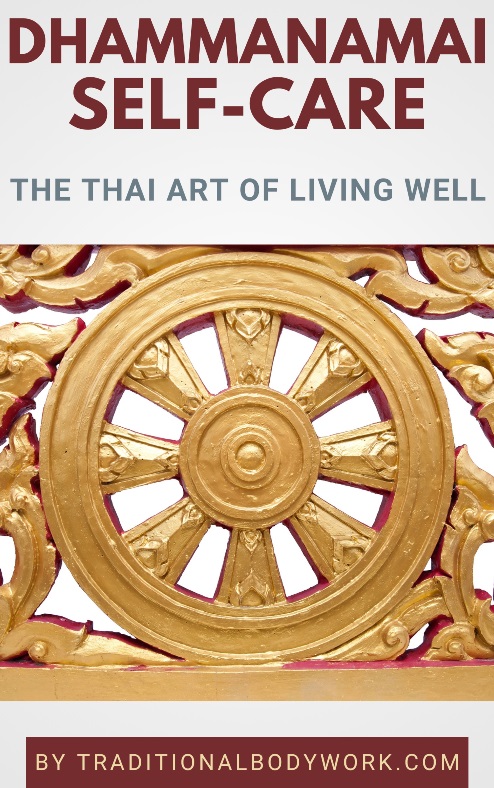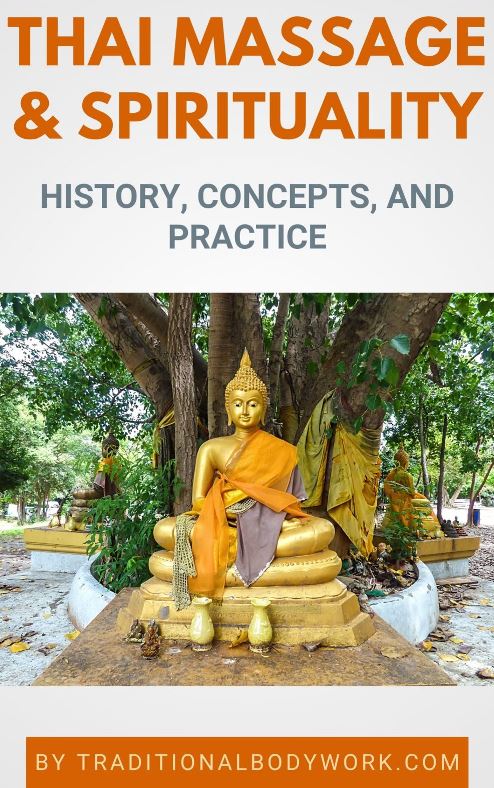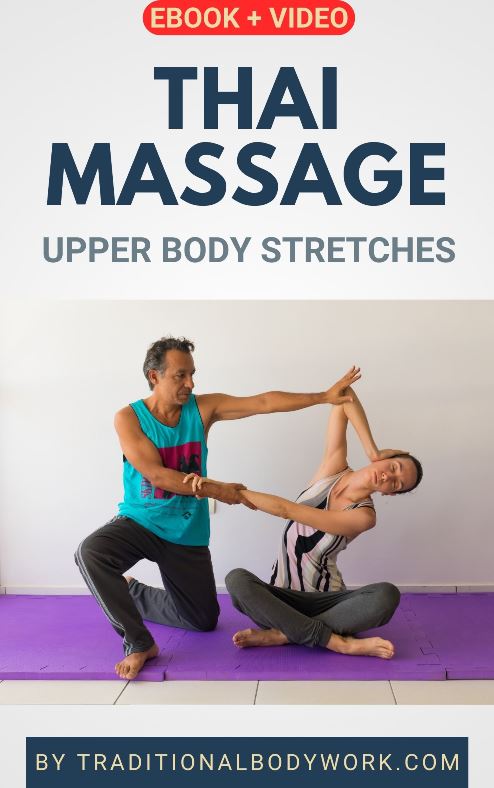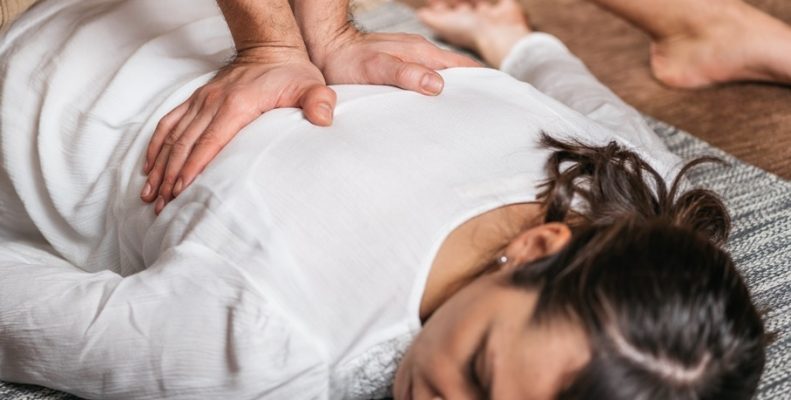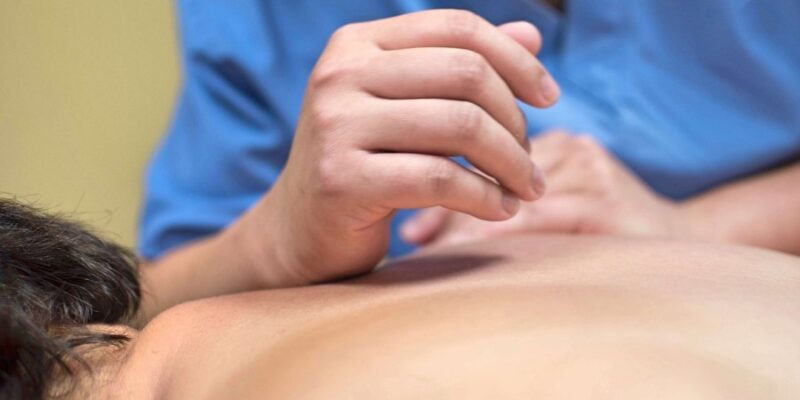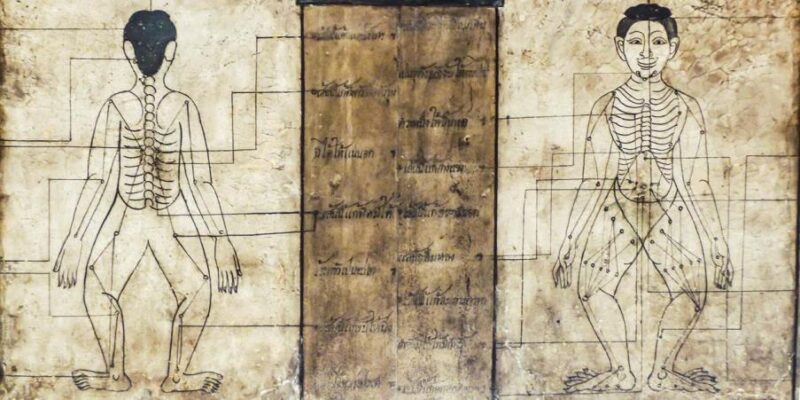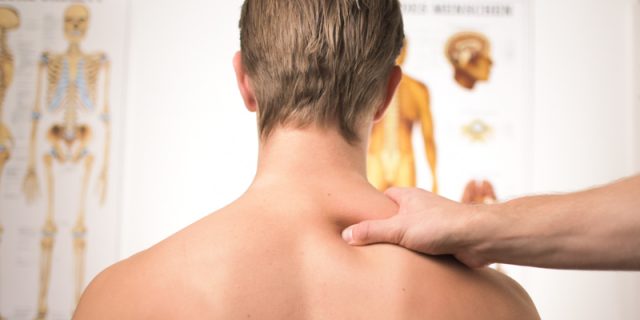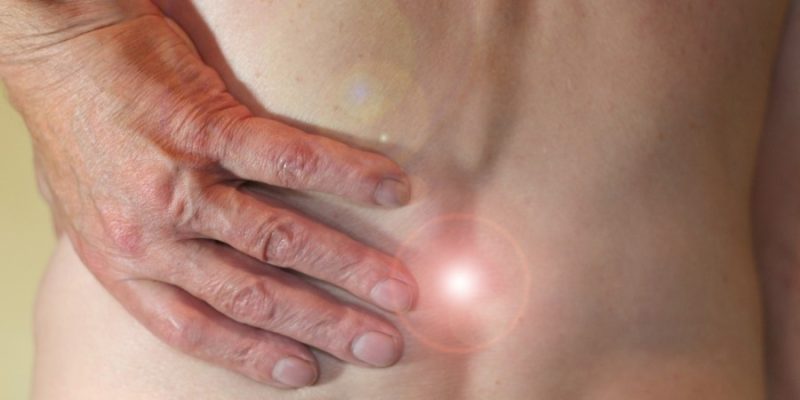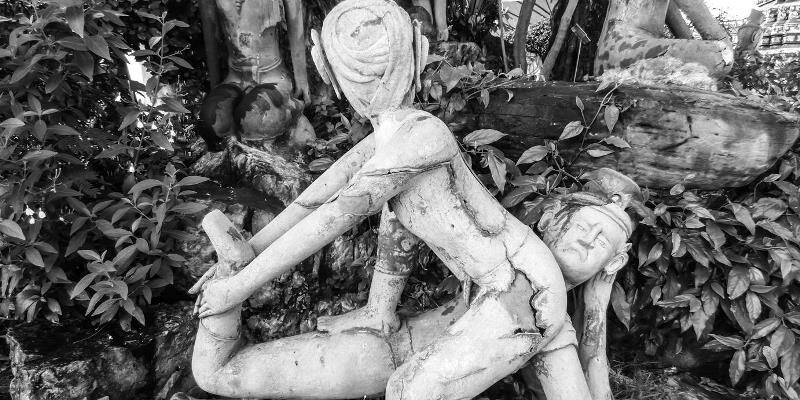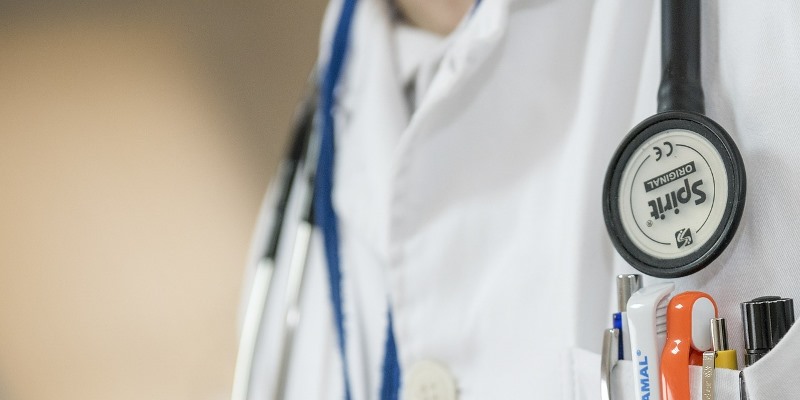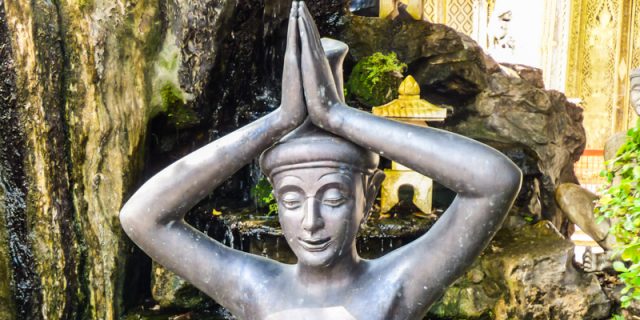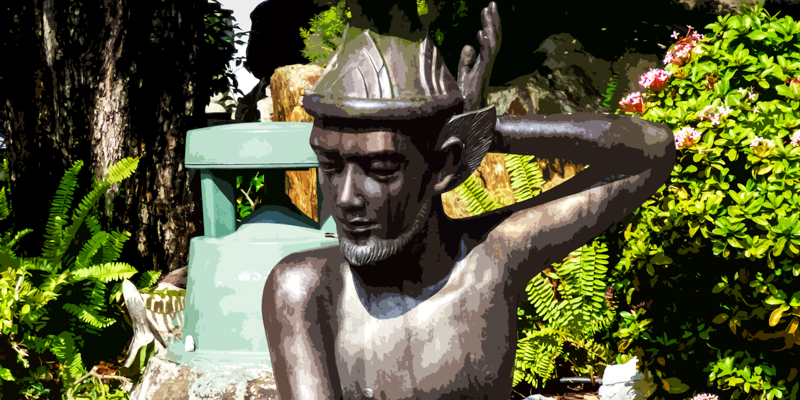
Although there are therapists claiming science-based evidence for massage, in view of the current state of Western medical science and research, claims of clear undeniable Thai Massage therapy health benefits in view of a variety of illnesses and diseases are considered unscientific. By the way, this has nothing to do specifically with Thai Massage, but counts for all types of massage and bodywork.
Modern Western Medicine and Massage
There has been done scientific research on the effects of massage, notably on results of several kinds of massage therapy on low-back pain, neck and shoulder pain, knee pain, and headaches, to name the most important study cases. Yet, none of the studies done over the years are “overwhelmingly” conclusive of the health benefits of massage. At best it has been concluded that massage “helps a bit,” “short-term,” in “some cases,” or “maybe,” and such.
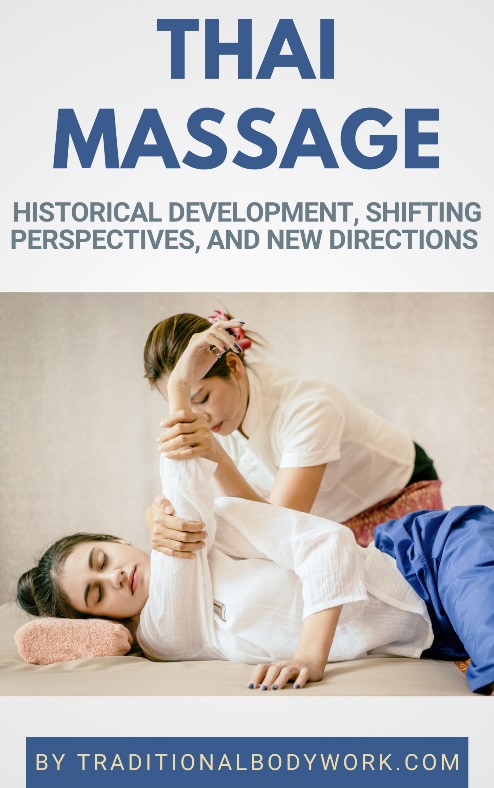
That all doesn’t mean massage therapy cannot or doesn’t work, it only means we don’t know exactly how or why it (sometimes) works taken into account our current way of “proving things scientifically.” The only clear scientific evidence of health benefits (that is, giving repeatable results in similar setups) seems to be that regular massage sessions reduce stress, anxiety, and depression in the participants of test-groups.
Well, at least … that’s something! And as we also know and “scientifically accept” that stress, anxiety and depression can cause a variety of illnesses both mentally and physically, then … I would say that massage therapy can be very helpful.
In any case, with each particular form of massage, the therapy given depends on the individual health condition and needs of a patient. Even if two patients seem to suffer from the same illness or discomfort, it doesn’t mean the treatment will be the same, which, by the way, is of course a “horror-scenario” for the scientific way of studying phenomena. So, the decision on what treatment exactly to apply will highly depend on this dreadful unscientific thing called “intuition and experience” of the massage therapist.
Thai Massage Therapy
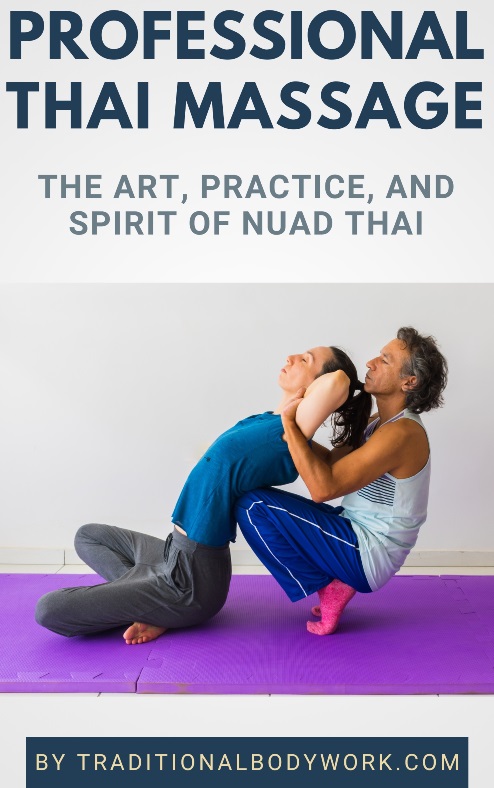
First of all, with Thai Massage, a treatment will almost always consist of a full-body massage. We will seldom treat only one part of the body, or just a few Sen Energy Lines or acupressure points. We will usually work holistically (I know … ugly non-scientific word again) in order to understand the person as a whole. Yet, depending on our intuitive and physical diagnosis, we will work more intensely on/with certain areas in order to reach complete energy balancing (yak, unscientific use of the word “energy”) of the patient’s body.
Secondly, we will often start with a basic approach to manage a problem. For instance: to deal with a low-back problem we will most probably work on the Sen Energy Lines Sen Ittha, Sen Pingkhala, Sen Kalathari and on certain acupressure points (sorry, the Sib Sen Energy Lines are invisible, no research possible there). Furthermore, we will also address the muscles of the back of the thigh, the gluteus muscles, and the lower-back muscles.
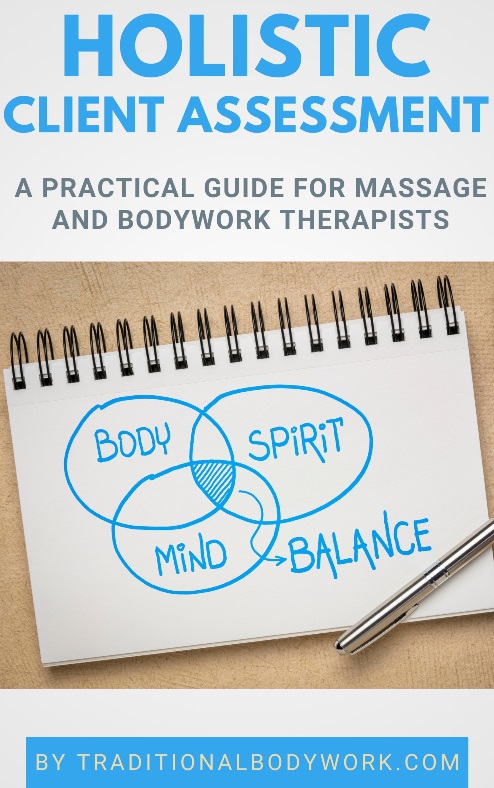
Thus, Thai Massage therapists work with the combined application of technical skills, intuition and experience, and depending on what they find may direct work to other (muscle, tissue or organ) systems, the skeleton or articulations, using advanced Thai Massage tools and techniques to resolve health issues using a holistic approach.
But apart from the pure physical level of what we have at hand, we also need to look at other factors: posture, working habits, stress, psychological and emotional life e.g. relationships, past trauma, nutrition, environment, etc. Other issues that may play a part in a health problem need also to be resolved (probably with other actions and tools than massage), or else problems will return or will be irresolvable.
And last but not least: we need to stay open for other treatments which could benefit our client and not hesitate to give advice to consult specialists from other healing disciplines, such as contemporary science-based modern medicine, psychology, homeopathy, osteopathy, physiotherapy, Chinese or Ayurvedic medicine, and so on.



